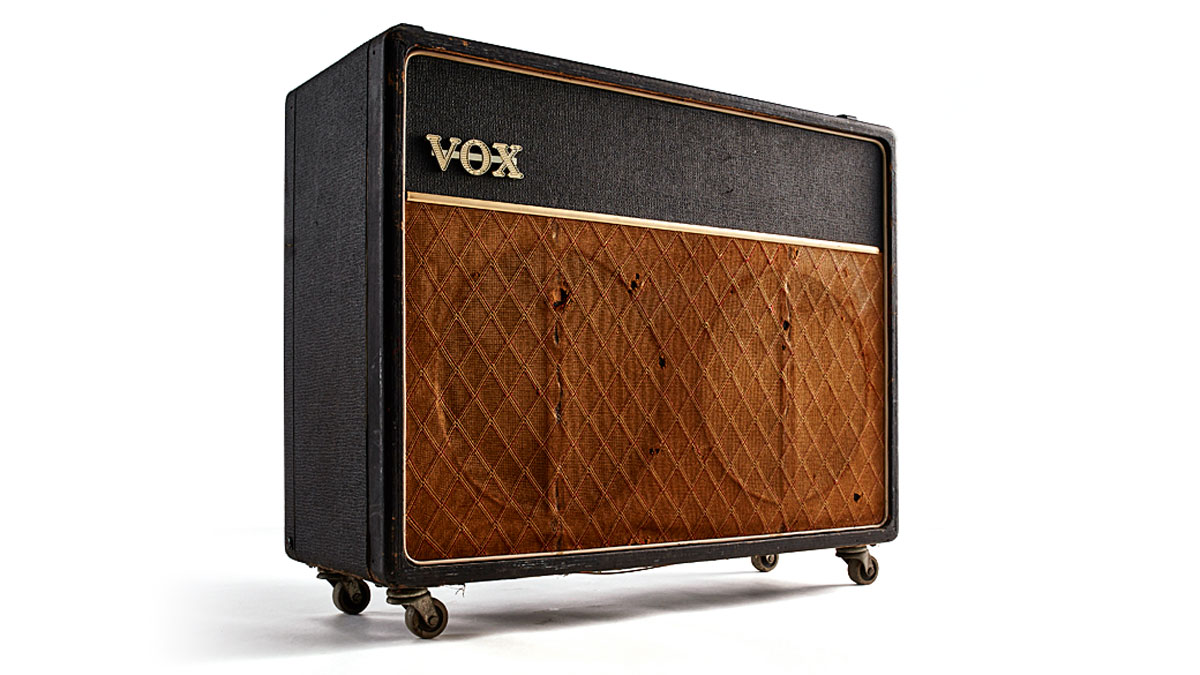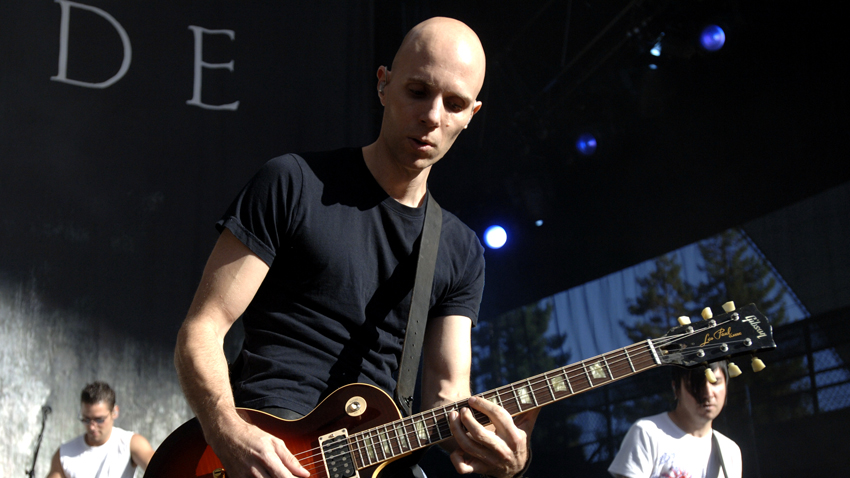A Perfect Circle guitarist Billy Howerdel’s career in gear: “I'm always searching for the right effect and how it translates emotionally”
Alt-metal trailblazer reveals his key guitars, amps and effects
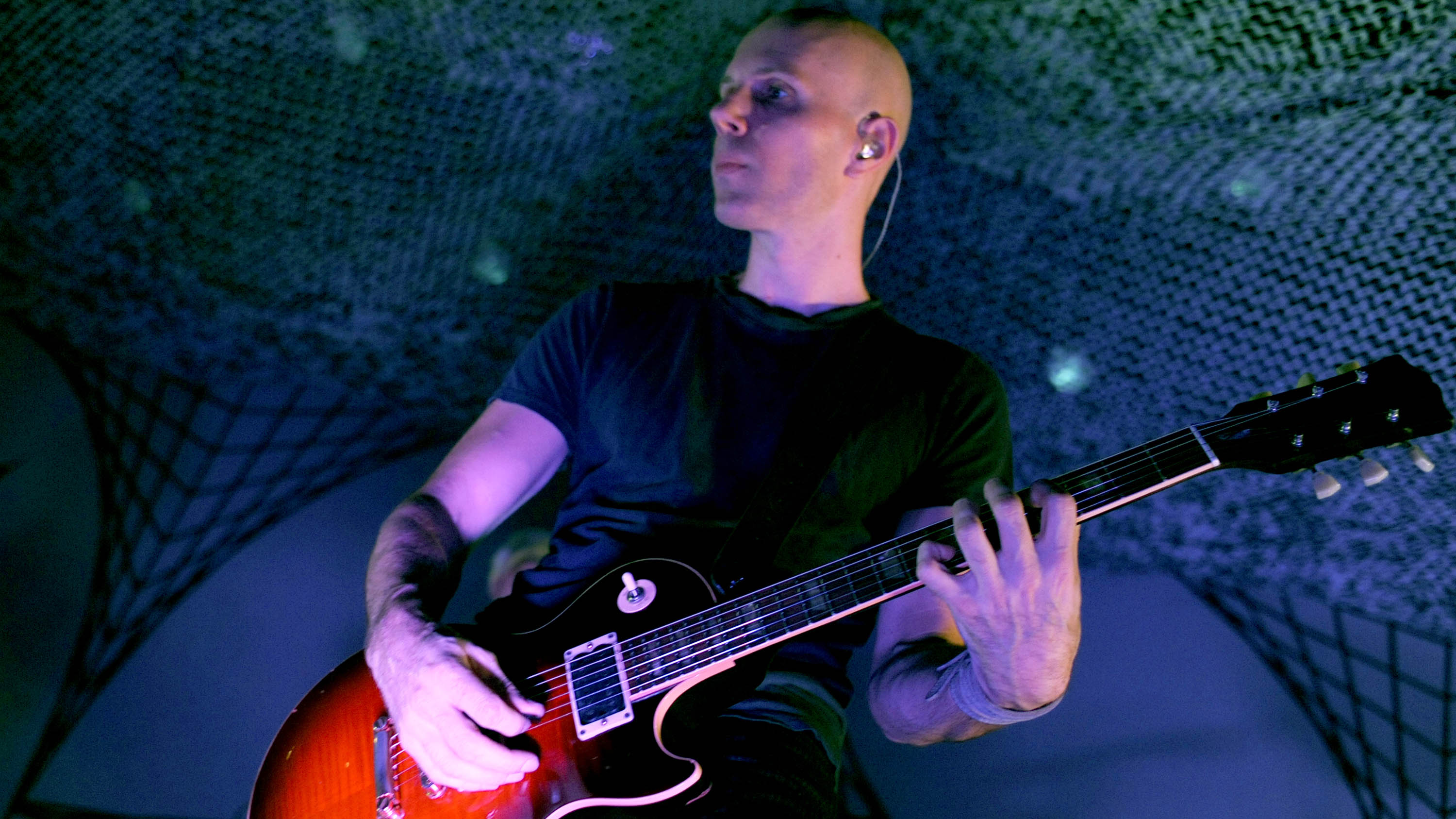
Known primarily for his trailblazing work as the primary songwriter for alt-metal supergroup A Perfect Circle, Billy Howerdel is in a reflective mood as his band readies their first album of original music in 15 years, Eat The Elephant.
In the intervening years since 2003's Thirteenth Step, the guitarist has mainly focused on side-project Ashes Divide. With this band, and 2008's stunning LP Keep Telling Myself It's Alright, Billy made a record that sonically could nearly have been the third Perfect Circle record, and logical follow-up to Thirteenth Step.
"When I was making the Ashes record - and I’ve never said this out loud before, but I guess my thinking was that the first song Stripped Away came from APC, and the last song Sword kind of got me back into the APC aesthetic, I guess… I feel like those songs I would have probably presented to be APC songs."
Eat The Elephant marks a huge change in sound for the band, with the guitar taking a backseat, becoming more textural and cinematic than before.
"It was mostly written on keyboards and piano," Billy explains.
"I kind of put down the guitar in 2014 and tried to do a re-approach to how I was finding notes and putting them together to make songs... I didn't have that much guitar on this record, and Delicious is one of the, possibly the only song on the record written on guitar. Everything else was written on piano."
Despite the wealth of timbres across his albums, Billy isn't the gear hoarder you might expect. In fact, most of his core sounds have been created by just a Gibson Les Paul, a pair of tube amps, and a handful of rack units.
"I felt like the first two APC records, I was really interested in trying to make guitars sound a little bit different... I've always been more of an effects guy than an amp guy. I'm always searching for the right effect and how it translates emotionally."
So with that in mind, let's dive right in to explore his gear...
Eat The Elephant is out on 20 April via BMG.
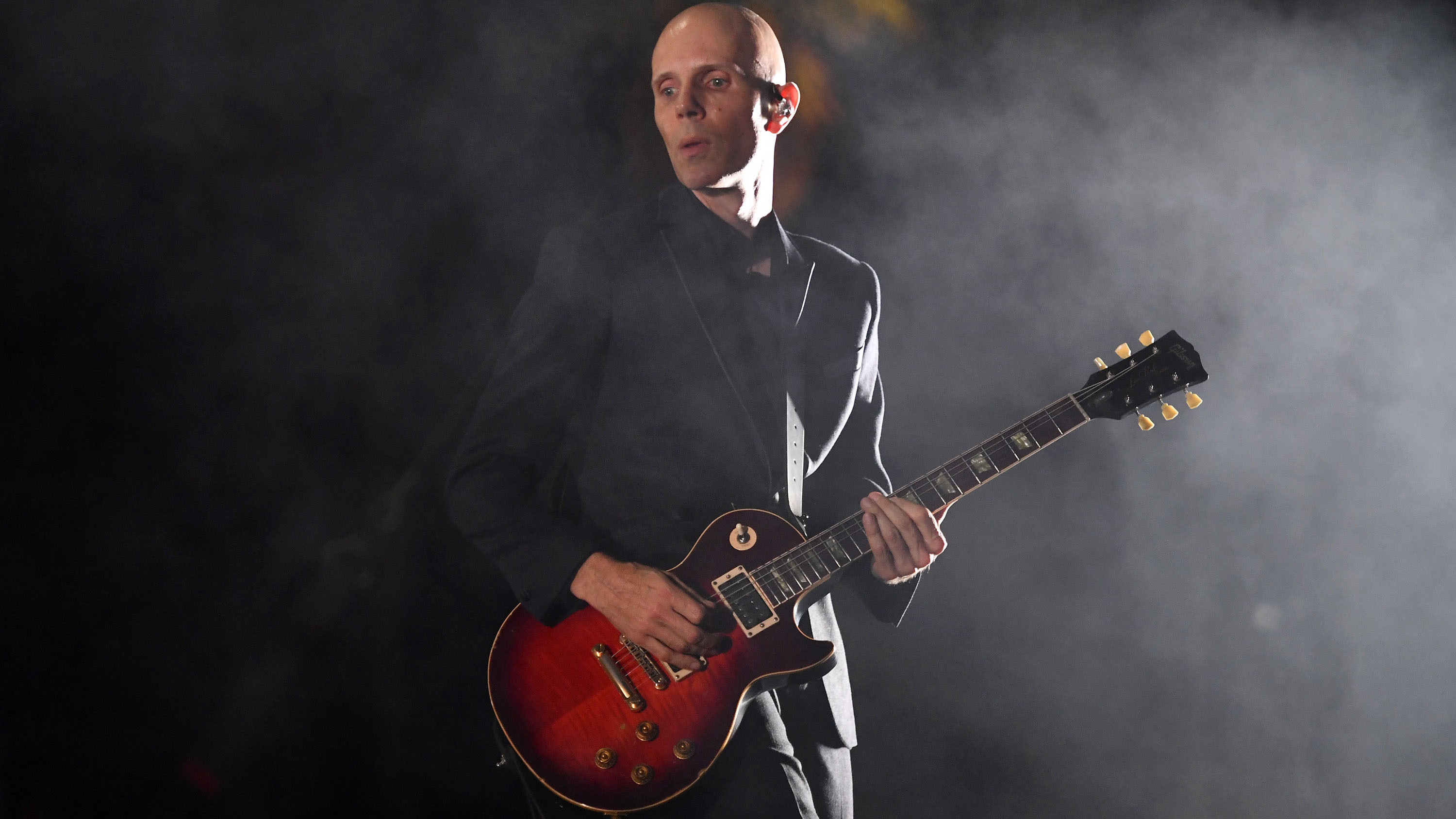
1. Gibson Les Paul 1960 Classic (1991 reissue)
Billy's trademark guitar since the inception of A Perfect Circle has been his striking Les Paul, which was given to him by Trent Reznor of Nine Inch Nails when Billy was working as his guitar tech.
It's had the headstock snapped off, and less harmfully, Tom Anderson pickups installed - an H3+ in the bridge and an H1- in the neck, as well as a treble-bleed mod.
"The character I play in APC greatly relies on that interaction [between guitar and speaker] and where I stand on the stage: ‘Am I getting a 5th harmonic, or am I getting this and that when I stand here, because there's a swell up in dynamics for the next part of the song’ - that's crucially important for me.
I talked with Gibson about doing a signature model, and then I just heard like everyone else about their troubles, but I'm going to make one last-ditch effort
"So I need a tube amp for that and I need the Tom Anderson pickups I use, and the volume pot is important; as I'm rolling down the volume, I put a cap on there so it gets thinner as you roll down your volume, whereas typically, your guitar gets a little muddier.
"I think [the mod makes the guitar] much more useful. You can start rolling down your volume, and I use tone and volume often. I wish there were presets on the guitar a little more, because I love tone off, heavy, single-note stuff.
“Y'know, I've definitely got that from the Tony Iommi school of simplicity, but on Delicious in particular, there's a lot of that, layering of these big guitars. On Stripped Away on Ashes Divide, you can hear there's probably 10 or 12 guitars in unison, just playing single-note, tone off, bridge pickup on that riff, and to me, it's probably the heaviest riff I've ever had.
"To me, there's some of my favourite guitar work on [Keep Telling Myself It's Alright] but it's not meant to be showy or front-and-centre. Things like in Ritual, I think Ritual and Too Late, there's some textures in there that I was really proud of, but you can't really hear them because they're mixed in, you know... the only one who would have ever heard it is Alan Moulder, because he mixed the record. He's the only one that would have heard it by itself.
"I talked with Gibson about doing a signature model, and then I just, y'know, heard like everyone else about their troubles, but I'm going to make one last-ditch effort, or work with someone else. There's a guy that works on my guitars that I might approach about doing kind of a signature model with, but I've gotta get a backup to that thing, 'cause it literally is the only guitar I play."
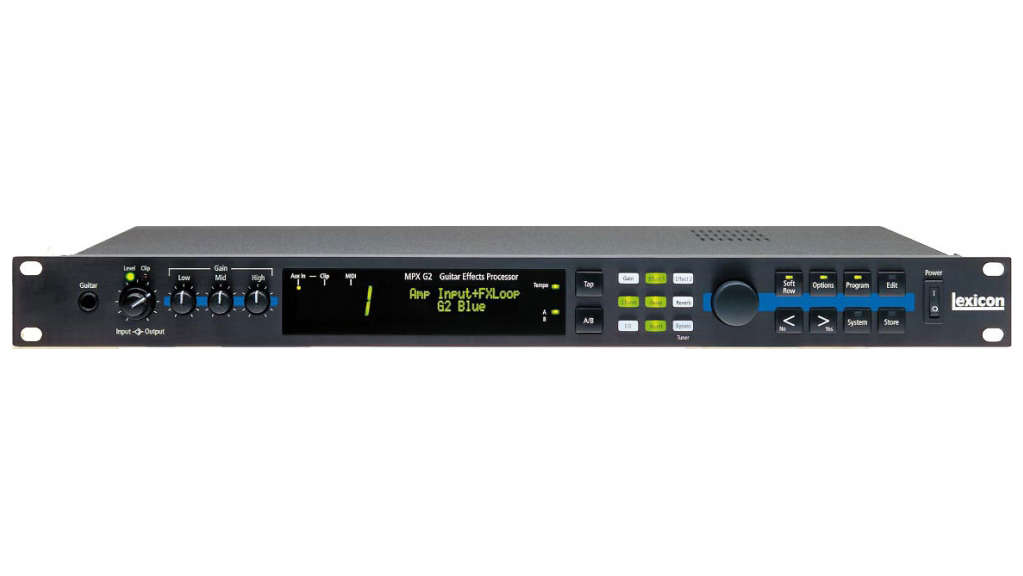
2. Lexicon MPX G2 and DigiTech GSP 2101
"I've used a couple of effects units that I've heavily relied on over the years, and now it's the Fractal, a Fractal Axe-FX, but back then on the first [APC] records, it was a Lexicon MPX G2. I loved that thing."
"I also used a DigiTech 2101. I'm still using the 2101 in my rack live, just for Thinking of You, for that song, because I can't get anything to pitch-shift that badly. It tracks just exquisitely terribly.

"A lot of times when I'm writing a song, it does come from the inspiration of sound, whether it's playing through TDM plugins back when I was using that kind of rig, so I might be able to record it dry and then kind of tweak the sound later.
“Y'know, when I did the first record in particular, I was very nervous about it being ‘pro enough’ for whoever was going to mix it, so I really did try and mix the record before Alan Moulder mixed it, and that came with leaving him every option, like not printing effects, or even EQs and compression - I had everything just running as post-effects."
A photo posted by @billyhowerdel on Oct 9, 2015 at 11:44am PDT
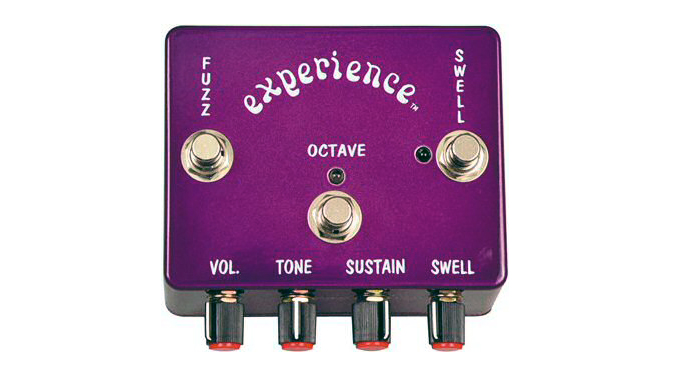
3. Prescription Electronics Experience
"The only pedal I think I've ever used on any APC record up until this one would be an Experience pedal by Prescription Electronics.
"That might be it. A lot of the things were multi-effects units going in, but a lot of times I would record guitars dry and then process them later.
"[On Eat The Elephant] I used it - God, I don't remember which song, but I think on TalkTalk."
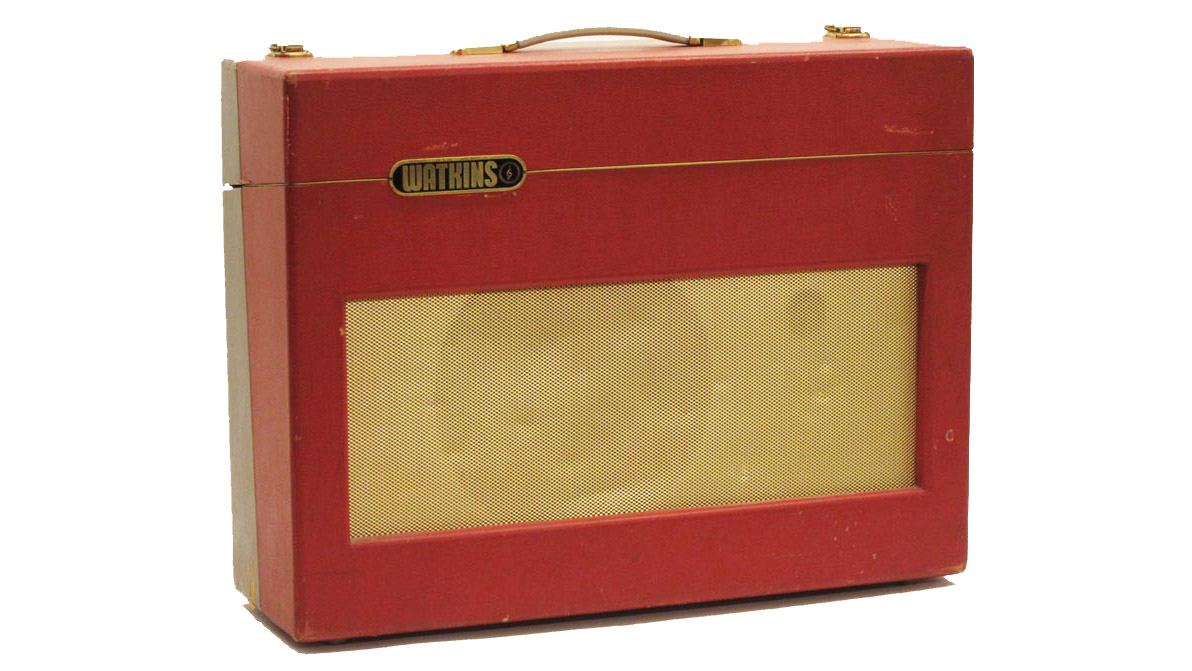
4. Tape echoes and Strymon pedals
"For this record, I grabbed a few different things. I recorded at my friend Oliver's studio, Ollywood Studios, and he has just got this amazing museum-quality list of gear. Just amazing.
"Old amps, old combos and pedals. There wasn't much documentation as to what was going on; I try to keep it fresh in my head, but it's fading now.
"A Watkins Joker - that amp was super-cool, with a built-in tape echo that was the original tape. Oliver warned it was probably going to turn to dust at any moment!
"The Strymon pedals: I put that reverb in front a few times, the delay, working with a tape delay [setting]. I think we used a Roland tape echo a few times. Y'know, it really was fast and furious at times. We did this record pretty fast."
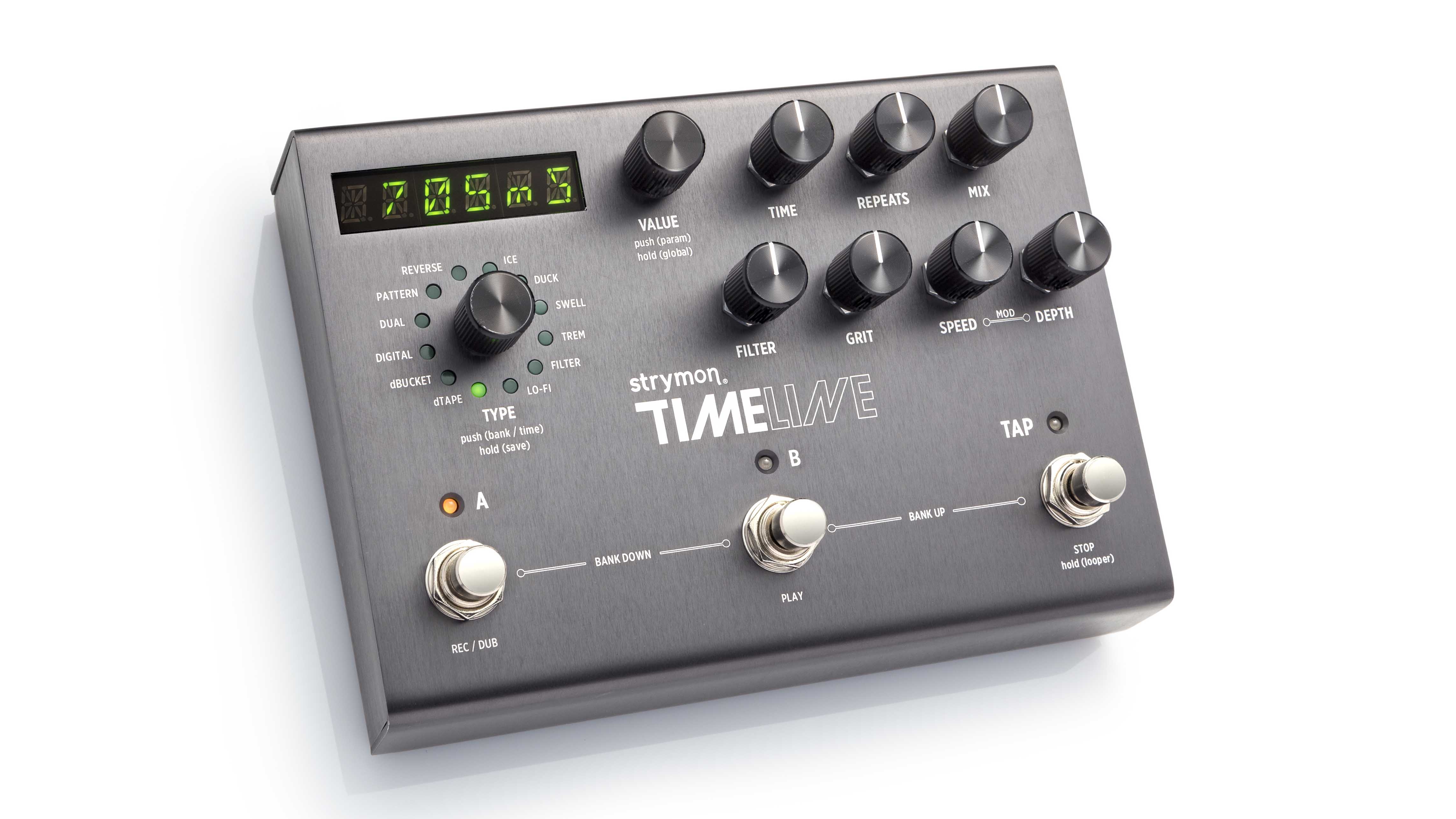
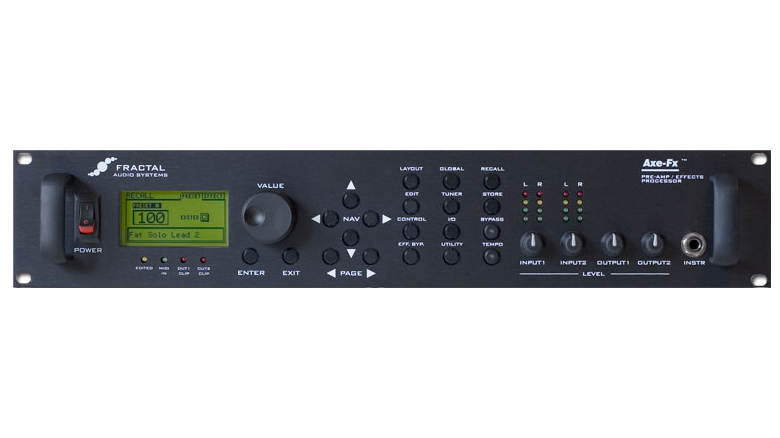
5. Fractal Axe-Fx
"For [some] clean sounds on the record, yeah, I used the Fractal. I used that Fender Twin simulator, and y'know, [producer] Dave Sardy's a real stickler, too - I mean he's probably more of a stickler than me for it being the real amp, just because.
"I think it all passed our sniff test, the Fractal. Especially the clean sounds. I think the thing where simulators fall short is when they start rolling down volume and getting the interaction from pickup to speaker, and getting feedback and harmonics and how it translates.
“That's something I haven't been completely successful in my mind with getting, so I think we still have another chapter in the simulator book that's going to address that, but I don't think every player needs that or listens for that. Even in Ashes, most of the stuff I was playing was more 'guitars on', 'guitars off.'"
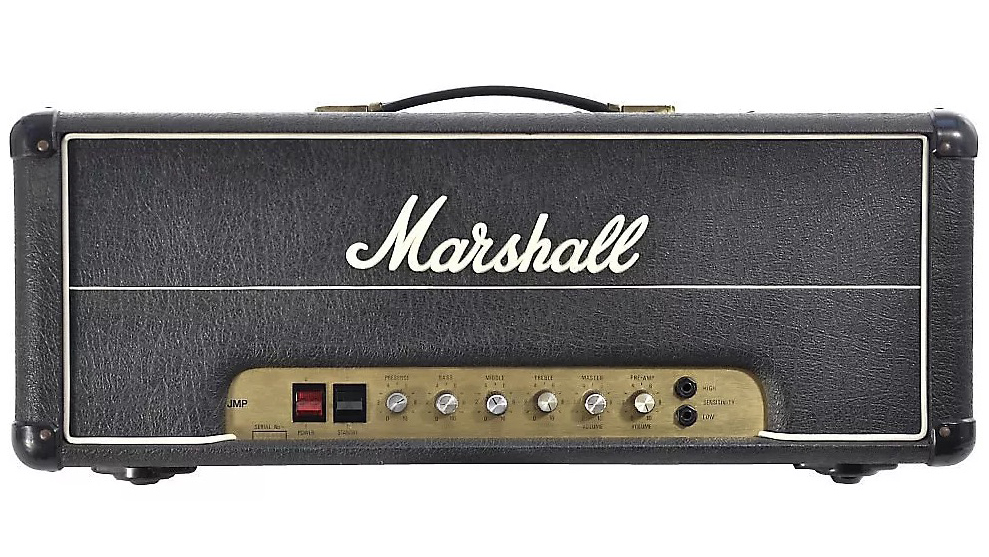
6. Marshall 1978 JMP Superlead 100
"I use one Marshall and one Gibson. The Marshall is a 1978 JMP Superlead 100 with a modded preamp section.
"[It] sounds like a Naylor - the Naylor is a little 60-watt head that is sort of the preamp style that Dave Friedman and I were going for when he first modded my amp back in, like, the late-’90s."
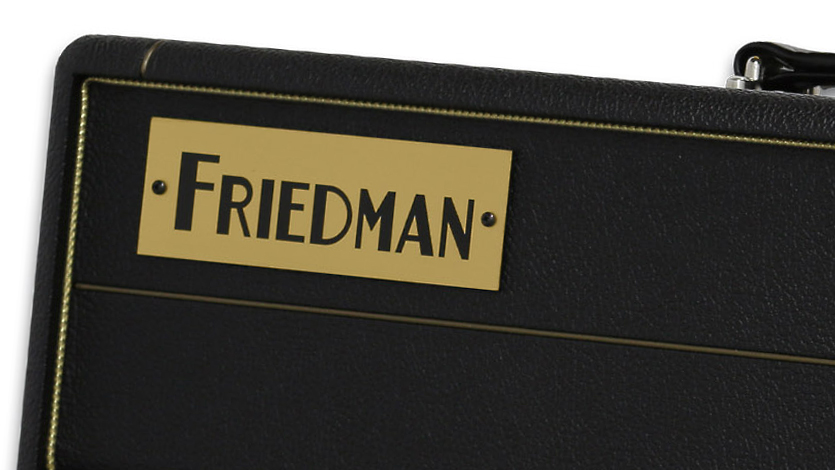
7. Friedman prototypes
"We're talking about, well, we're actually in the works of releasing my amp... that might be coming in the fall, a pretty limited run. It's not going to be a big production run. Yeah, I'm just kind of working on the knobs and things right now.
"My real head is, well I have the original Marshall that it was modelled after, and then I have two rackmount versions that are in my racks, and... they look like 1960s Soviet aerospace vibe equipment. Very early tech. So yeah, we're going to put that together and offer it for sale pretty soon."
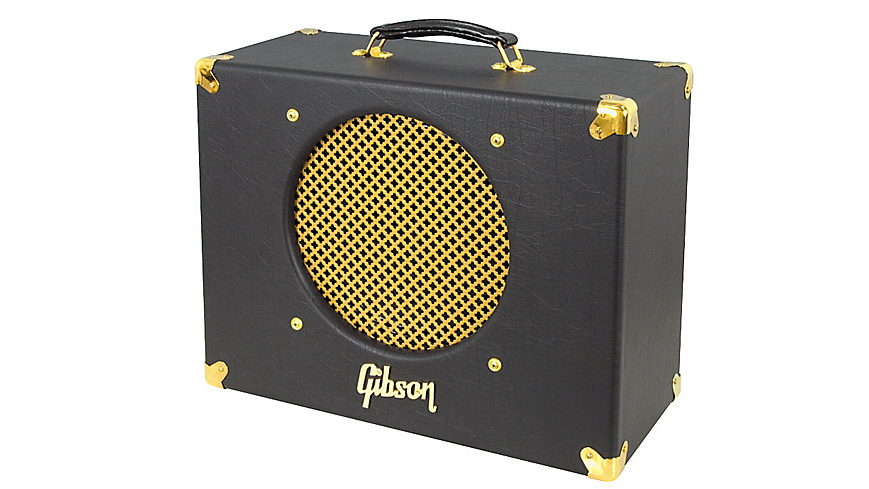
8. Gibson GA-15RV
"I have a couple of those little Gibsons, but this one, there's this one in particular that's amazing, and it's not modded, it's just the stock amp...
Buck Dharma told me, 'that little Gibson - if a pirate played guitar, he would play that.'
"I used that driven into the power section of the Marshall and combined it, so the preamp of the Gibson, I mic'd the Gibson, dry, and then take a tap out into my effects, into like the Axe-Fx and everything else, and then it goes into the power section of the Marshall so that we [can] blend those two sounds.
"It's much thinner-sounding on the Marshall, when you go through it like that, but the Gibson is so uhm... I'll say this. You know Buck Dharma from Blue Öyster Cult? I met him, and I was a big Blue Öyster Cult fan when I was a little kid, y'know, and his sound, well, you could go back and listen to all APC and especially any solos I do and you could probably hear where that came from.
"So he came over to my studio years ago. I'd met him on the road and invited him over when he was in town, and his famous quote to me, which I think describes it well, is 'that little Gibson - if a pirate played guitar, he would play that.'
"It's so raw. Like, if I were to join Queens of the Stone Age tomorrow, it would just be my Gibson Les Paul going through that Gibson combo and done.
"I think it's from around 1997, 1998 - it only ran for two years, apparently. There's something special about my main one. I've got a back-up, but it doesn't quite sound the same. For whatever reason, this one is a special one. I have others, too, but there's just one that sounds right.
"I've considered making a run of these things, or something modelled after it. Maybe somebody did mod it before I got it first, and I don't know what happened to it... I got others from Gibson, but I think I bought this one second-hand. I wish I could send them a thank-you card."
Alex Lynham is a gear obsessive who's been collecting and building modern and vintage equipment since he got his first Saturday job. Besides reviewing countless pedals for Total Guitar, he's written guides on how to build your first pedal, how to build a tube amp from a kit, and briefly went viral when he released a glitch delay pedal, the Atom Smasher.
